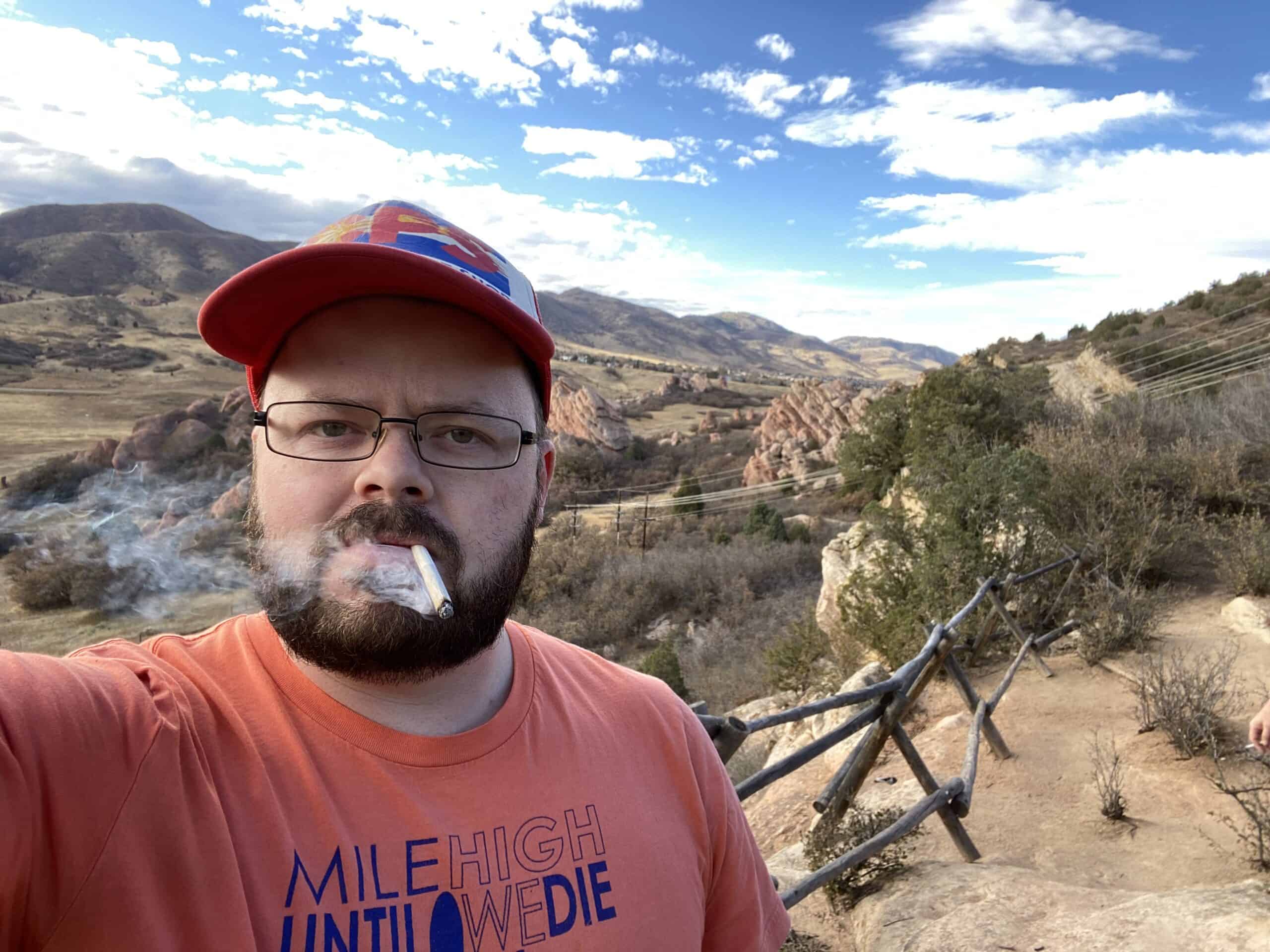After a decade of blazing a trail in cannabis policy, Colorado may be setting a troubling precedent: crippling the state medical cannabis program in the era of adult use.
On January 1, 2022, HB21-1317 took effect in the state. Titled “Regulating Marijuana Concentrates,” the law was aimed at curbing teen cannabis abuse. The act tasks the Colorado School of Public Health with creating a systematic review of the scientific research “related to the possible physical and mental health effects of high-potency THC marijuana and concentrates,” and requires coroners to conduct drug screens on all non-natural deaths.
But while assessing the potential harms of concentrates is a primary focus, the law includes a number of other components that have so far created obstacles for Colorado’s medical cannabis patients.
“I’m still trying to figure out what aspect of this bill actually keeps cannabis concentrates from the hands of those getting it illegally,” says Bridget Seritt, founder of Advocates for Compassionate Therapy Now. Seritt, a cannabis patient herself, thinks that the law harms patients in a variety of ways.


HB21-1317 tightens purchase limits on concentrates, in most cases restricting patients to eight grams per day (two grams for those aged 18-20), and requires the state’s third-party inventory tracking system to monitor consumers to ensure they aren’t exceeding their limit by shopping at multiple dispensaries. The result, says Seritt, is that patients who were once able to make monthly refills of their medicine now must make weekly or even daily trips to the dispensary. Seritt says she used to have to hit the dispensary twice a month at most. Now she’d have to go every three to four days to maintain the dosing that works best for her condition.
Frequent trips to the dispensary can be especially burdensome for people living in parts of the state where medical dispensaries aren’t permitted—some patients have to drive for hours to get their medicine.
As a result, claims Seritt, the associated travel costs to patients in her network have climbed 50 to 100 percent, and some can’t afford to stay within the bounds of the law. “Most of us have had to cut down and we’re not doing as well. Our health is being impacted,” says Seritt.
The law also creates new demands on doctors. In particular, a new requirement that doctors recommend specific potency limits and products seems to veer dangerously close to writing prescriptions for a Schedule I controlled substance, something that poses a problem for doctors reliant on DEA licensure to practice medicine.
“Along the way we have given what you would call dosing information for patients so that they know how to use the product, but not specifically a prescription,” explains Jessica Hogan, the director and owner of Vibrant Health, a clinic that operated in Colorado Springs. “For it to be on the form–the doctors weren’t comfortable with that.”


Her doctors were afraid that writing the referrals could put their medical licenses at risk, and Hogan ended up shuttering her business. Hogan says Vibrant Health averaged 2,000 patients a year, and prioritized more in-depth evaluations, with a specialist available for pediatric patients.
Patients ages 18-20 were a particular focus of HB21-1317, and now require a diagnosis separate from the actual referral, necessitating a consultation with a doctor from a separate practice. This can be particularly tricky when most primary care physicians are reluctant to sign off on cannabis treatment. Additionally, patients in that age bracket must have their recommendation recertified every six months.
“Finding two doctors is very difficult,” explains Seritt. “That card went from a $200 card to almost $1,000.”
Seritt says many patients are leaving the medical cannabis program or even the state. She describes one underage member of her network who has gone back to a pharmaceutical regimen previously demonstrated to be less effective and with more accompanying side effects than cannabis.
So how did this happen?
Cannabis patients are suffering because experienced practitioners of cannabis medicine were not consulted when HB21-1317 was drafted, explains Martha Montemayor, director of Cannabis Clinicians Colorado, an organization dedicated to educating doctors on cannabis medicine. “The people behind this law probably have good intentions, they just know nothing about cannabis and nothing about the law,” says Montemayor. “The regular people who normally work on cannabis legislation were locked out.”
Montemayor operates a referral clinic in Denver with satellite offices across the western portion of the state. She stresses that they’ve lost physicians due to the requirements of the new legislation. The bill saw broad bipartisan support at every junction, with dozens of Republican and Democratic cosponsors, and drew the attention of more than 130 lobbyists, overwhelmingly registered in support of the bill in filings with the Colorado Secretary of State.
Supporters of the bill included a swathe of pediatric care organizations and other representatives of the state’s medical establishment, as well as the prohibitionist organization Smart Approaches to Marijuana (SAM). The bill’s prime sponsor, Speaker of the House Rep. Alec Garnett, received SAM’s 2021 Advocate of the Year Award for his efforts. “This is a distinct honor,” said Garnett in a statement published by SAM announcing the award. “I am so proud to be affiliated with all of you and proud of the work you have been doing, and I think the sky really is the limit.”
Garnett ignored multiple requests for comment for this article.
Seritt sees the legislation as the culmination of a years-long effort to restrict cannabis concentrates in the state, an effort that manifested previously as a bill limiting potency of all cannabis products, medical or otherwise. That bill died before reaching a vote, but Seritt describes her surprise at finding its intent living on in HB21-1317 even after lawmakers assured her it had been abandoned. Patients were not part of the discussion while 1317 was being written, claims Seritt, with lawmakers more intently taking into consideration the opinions of emergency room doctors, mental health professionals and the parents of children who had developed issues while using illicit concentrates, or as she describes them, “The three groups of people who will never see anything good regarding cannabis and how it works therapeutically.” Patient activists made whatever objections they could during public comments on the bill and by appealing directly to lawmakers, but in the end, it did little to curtail the measure. “We did not feel heard,” says Hogan.

While the collection of cannabis doctors and patients may have lacked the resources to move the needle on the issue, the commercial cannabis industry did not, and several adult-use cannabis brands hired lobbyists to work on the measure. Some have insinuated that these companies may have had a vested interest in moving consumers away from the medical market and into their adult-use stores, but evidence to support this claim is lacking, and none of their lobbyists registered positions of support with the Secretary of State.
“We had concerns about restricting access to constitutionally legal medical cannabis,” says Truman Bradley, executive director of the Marijuana Industry Group. “We had concerns that it would increase costs, and that it would intimidate doctors.”
Marijuana Industry Group hired lobbyists to influence the measure, which Bradley says originally contained much harsher language, including a ban on hydrocarbon concentrate extraction and a 15 percent potency cap for both medical and adult-use products. “That’s a hill that anybody in cannabis policy would need to die on, and we were willing to do that,” says Bradley.
Having money to spend does seem to have granted MIG a bit more sway than the grassroots activists, though not enough to overcome the issues within 1317. “We worked with the bill’s sponsors on 1317, but we were not able to get the bill to a place where we could support it,” says Bradley. “It’s not as simple as saying we supported it or we opposed it.”
As for allegations that the commercial cannabis industry would work to undermine medical cannabis, he says that’s a strategy that just doesn’t make sense. He also agrees with Seritt, Hogan, and Montemayor that there weren’t enough stakeholders in the room while the bill was being written.
“There are clear special interest groups in Colorado and nationally that know they can’t roll back constitutional amendments, but they would like to put as many restrictions on both the medical and recreational marijuana markets as possible,” says Bradley.
With the effects of the law now coming into focus, the only remaining avenue may be a lawsuit filed on behalf of an underage cannabis patient, which several doctors have joined as plaintiffs since its initial filing. The suit challenges that 1317 amounts to an alteration of the state’s constitution, something that cannot be done by statute and must be done through voter referendum. So far, an injunction against enforcement of the law has not been granted.
“Our hope is that the unconstitutional portions of this bill will be enjoined and that we can come to a sensible middle-ground that reduces diversion and abuse, maintains the integrity of our Constitution and medical marijuana program, and supports the very patients for whom legal marijuana was initially intended,” writes plaintiff attorney Alex Buscher in an emailed response.
But while the lawsuit proceeds through Denver district court, doctors will continue to abandon their practices, and patients will continue to seek whatever relief they can find within their diminished capacity to do so. Whether 1317 will mitigate the harms it was intended to solve may yet be borne out in the data created under the measure, but for the moment as Hogan sees it, “We’ve been pushed 20 years backwards.”





